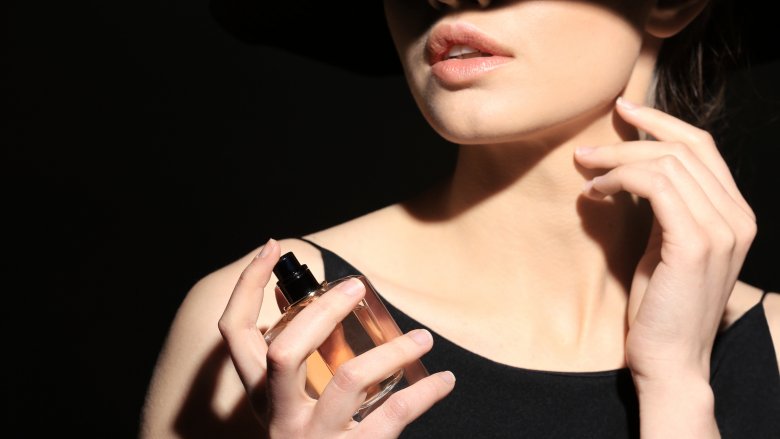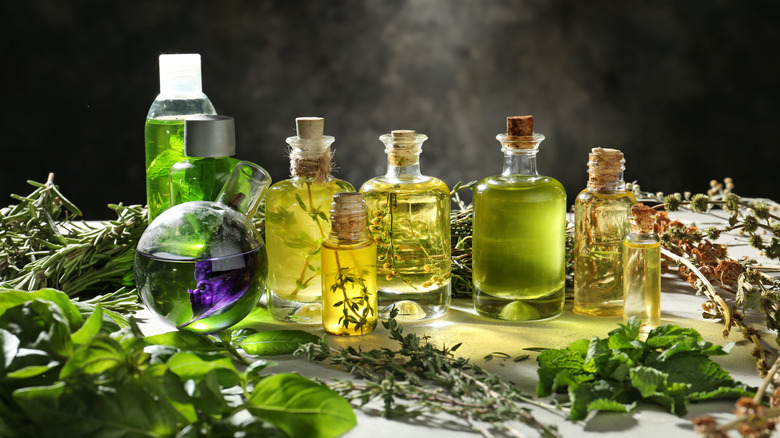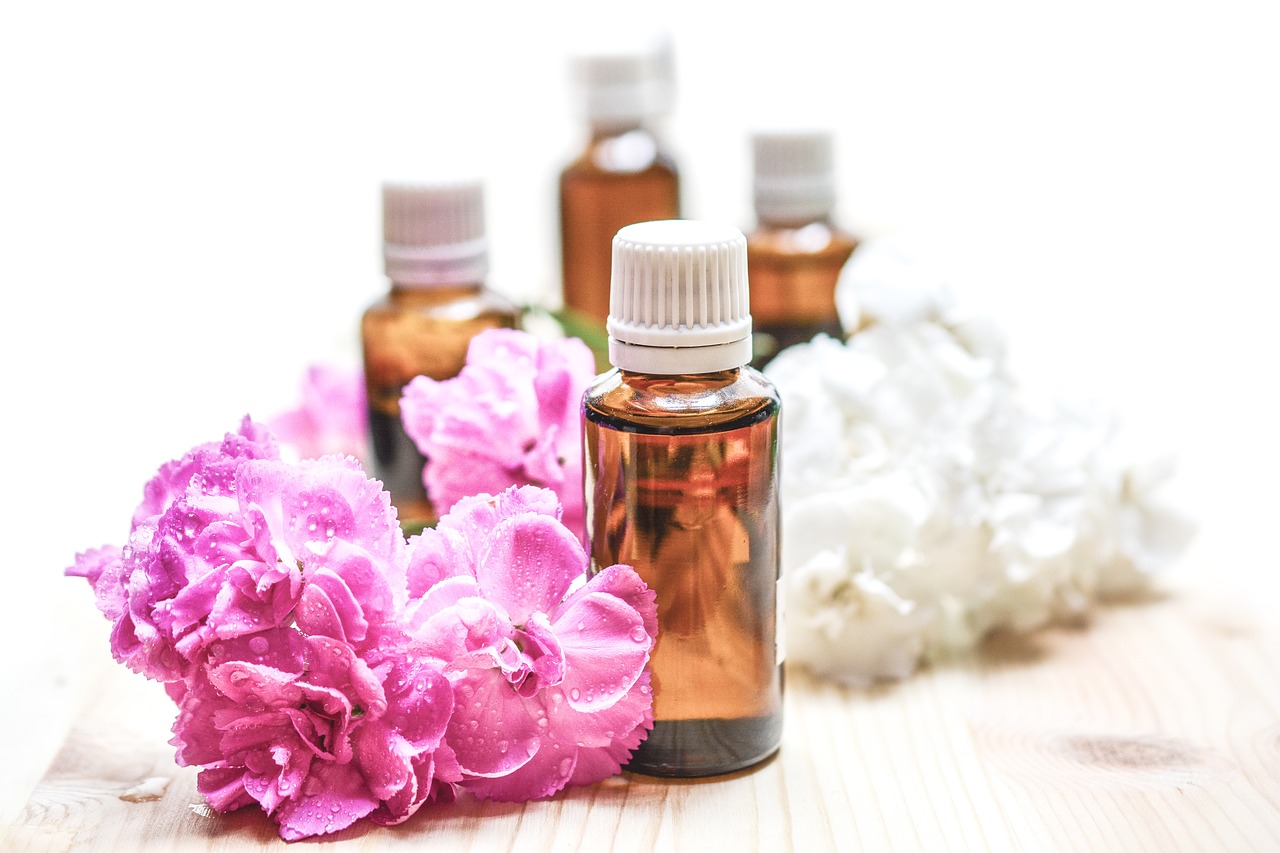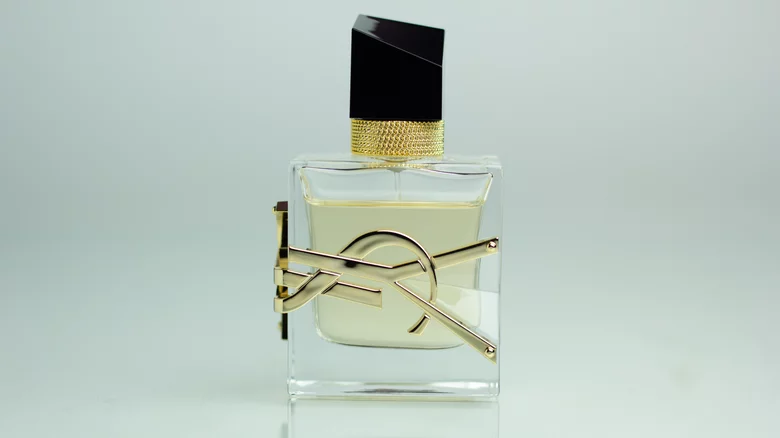Have you tried essential oils? With more and more people turning to alternative medicine, homeopathy…
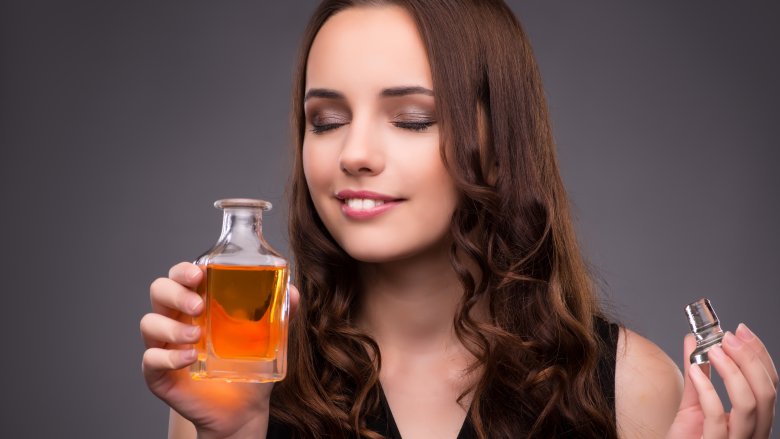
The untold truth of perfume
There’s something very mysterious about perfume. Unlike anything else, it’s the only thing we wear that is invisible, it’s unique on everyone, and most of the time we have very little understanding of the ingredients. I asked several fragrance industry insiders to spill their secrets about what is really in perfume, how to choose right scent, why that fragrance smells so good on your friend, but not quite so delightful on you, and so much more. You will never wonder what you are spritzing on again.
Many fragrances consist of natural ingredients
Founded in 1981 by former pianist and fashion model, Annick Goutal, the namesake brand is still one of the most important names in the high-end luxury fragrance market today.
Still a family-run business, daughter of Annick Goutal, Camille Goutal, is the in-house perfumer for the brand. She revealed that flowers are one of the most important ingredients the company uses in their fragrances.
“Flowers in fragrance have a very long history. They are so beautiful, feminine, and sexy and therefore that translates to the scent itself,” she told me. “Flowers will always intrigue and fascinate both men and women. When women wear fragrances made of flowers, some say they feel a special connection with nature.”
Some fragrances have synthetic ingredients
Goutal told me that the brand has always been fond of natural ingredients, and they are the main components of their fragrances, but going 100 percent natural isn’t always possible. She revealed there are many reasons behind this. “Many fragrances do consist of natural ingredients, but it’s not the case in general. Due to the cost of natural ingredients, most brands can’t afford them.”
But it is not just a matter of economics. For some specific scents, using natural ingredients all of the time is simply too difficult. “Natural ingredients are beautiful and complex, but not the easiest to formulate. I don’t favor one over the other in terms of synthetic versus natural. Synthetic ingredients are great and offer multiple possibilities when natural ones can’t. For example, you can’t extract the scent of peach or coconut naturally, and that’s when synthetic ingredients take over the natural ones.”
Another reason manufacturers use synthetic ingredients is sourcing some natural ones take too large a toll on the environment. Eric Korman, who is the founder and CEO of PHLUR told me, “We do not use real sandalwood, as this would ecologically irresponsible. Instead, we use a raw material safely created in a lab that replicates the essence of sandalwood and we donate $5 for every bottle sold to the International Union for the Conservation of Nature.”
There is a difference between perfume, eau de toilette, and cologne
While many of us use the expression “perfume” as an umbrella phrase to describe different kinds of fragrances, not every fragrance is technically “perfume.” Goutal broke down the differences. “The highest concentration is in pure perfume (or parfum). Next would be eau de parfum, then eau de toilette, and finally eau de cologne.”
Perfume has the strongest scent for various reasons. “The highest-concentration scent format, perfume (also called parfum, parfum extrait or perfume extract) has traditionally scented the wealthy. It’s the purest of the fragrance recipes, with the highest concentration of expensive oils and the least amount of alcohol and water. In some cases, it may contain no water at all. Eau de Parfum and Parfum is the strongest.”
While many people believe eau de cologne or cologne indicates a product is for men specially, Goutal revealed that it is a misnomer. “Eau de cologne is not in fact a gender-specific format, which surprises people and can actually smell different from a perfume version of the same scent.”
Perfume is worth its price
Much like clothing, you can buy fragrances for pennies or thousands of dollars. But perfume doesn’t come cheap. Goutal told me there are several factors that go into the price. “There are many reasons why perfume can be costly,” she explained. “The main reason is the quality of the ingredients and the bottle itself.”
However, price does not always reflect the quality. It can simply be about marketing. “What is disconcerting for the client is that a very expensive fragrance does not equate to a perfume of quality. Sometimes, it’s just a price positioning.”
Fragrances do not have to be expensive
A quality fragrance doesn’t have to break the bank. Korman told me, “There are a few key factors that drive up the price of fragrance and unfortunately a lot of [those factors are] not ingredients. Mostly money goes towards inefficient marketing campaigns, royalties to fashion designers or celebrities, and silly packaging.”
But not all companies choose to invest in these “other” components of fragrance. Some, like Phlur, have a direct-to-consumer marketing plan that allows them to create a superior company at a lower retail cost. “We actually spend 3 to 4 times more per bottle on ingredients than what you’ll typically find in a department store, and we are able to keep them priced at $85, versus the $160 and up you’d need to pay for something of similar quality,” Korman explained.
Scent trends change seasonally
While scent trends push sales, they also have a lot to do with consumer preferences. According to Goutal, “There are two types of trends. One is just seasonal and simply depends on the weather. People usually wear light scents in summer and heavier ones when it’s cold, but it’s not a rule. The other much-longer standing trend is when an ingredient or a type of scent is on trend. This could be three years or sometimes a decade.”
In terms of specific notes, Goutal told me, “Citrus notes or vanilla notes seem to have the longest appeal and the longest staying power in terms of what people wear overall. For the last ten years, perfumes have tended to be stronger and more sugary, but it’s changing a little bit.”
However, not every manufacturer necessarily develops fragrances to be on trend. “Our new Naughty Garden scent for example is a fragrance with timeless appeal blending of variety of very unique notes that can definitely transcend seasons be worn and enjoyed all year round rather than pinning itself to a particular season,” explained Francois Damide of Crafting Beauty, who helped formulate the scent for Laubahn Perfumes. “But, ultimately, it is up to the consumer. Some people lean towards lighter, fresher fragrances in the warmer months and deeper, muskier fragrances in the winter, where as some people will wear the same fragrance 365 days a year. It’s all about personal preference.”
Fragrances with woodsy, citrus, and vanilla notes tend to be the most popular scents
If you’ve noticed that many scents smell alike, no matter what label is on the bottle, it’s because there are certain notes or categories of fragrances that tend to be popular across the board.
Goutal explained, “Light, sparkling, citrusy notes and vanilla” are usually on trend, but it varies by the market. For men, she says they “tend to lean toward woodsy scents. There has also been a trend for Oud recently.”
But Goutal’s approach to choosing a scent is that it is a very personal process. She told me, “Trends are not important. What’s important is that you enjoy wearing your fragrance, no matter how trendy (or not) it is. I always say to the clients they need to fall in love with their fragrance. It must be love at first sniff.”
Fragrances can smell different on everyone
Our unique bodies, lifestyles, and chemistry can change the scent of a fragrance from person to person. Korman illustrated the science behind this, explaining, “A person’s unique body chemistry affects how a fragrance smells. For instance, people have varying pH levels. That is one reason why a fragrance might smell differently on you versus your friend. What you eat, your body temperature, and the environment you’re in also factor into how a fragrance smells.”
Another frustration that many people encounter when trying new scents is that they smell it on a piece of paper at store, but when they take it home, something has changed. Korman shared the reason for this. “We obviously are not made of paper, so a fragrance will always smell differently on you, and differently over time, than in a few minutes on a paper strip at the mall.”
His solution to this dilemma was to change the sampling process. “We found a pretty easy solution to that problem for Phlur by creating a sampling process which enables customers try our fragrances on their skin, and in real life—not a paper test strip.”
The higher the quality of fragrance, the longer it will last
There is nothing worse than a scent that fades by midday. If you find your fragrance doesn’t last, you may need a product that has a higher concentration. But using too highly a concentrated product isn’t necessarily better. After all, who hasn’t sat next to or been in a room with someone whose perfume is stronger than their personality?
Damide said this dilemma is something manufactures have to consider when creating new products. “In an effort to make sure a fragrance lasts longer, we look to high quality ingredients and higher concentrations of fragrance oil.” She explained that testing fragrances at various concentration levels helps manufacturers to find the “sweet spot of scent and longevity.”
But for consumers who deal with fragrance fade, Goutal says the simple solution to this problem is to choose a perfume as opposed to eau de toilette, for example. “[Perfume] tends to last longer on the skin.”
Choosing the right scent isn’t difficult
There are so many fragrances out there that choosing one can feel very overwhelming, but Korman thinks we are overcomplicating the process. “Choosing a scent can be confusing, because similar to wine, many people who consider themselves ‘experts’ overcomplicate it to make it hard, but at the end of the day, the most important thing is what you like.”
He suggests really thinking about who you are when choosing a scent and going from there. “Remember, smell is our most visceral sense, so fragrance should be an extension of yourself. Look for scents that elevate different moods and moments, helping you express your natural self. For example, if you are vivacious by nature and heading for a night out, try a fragrance boasting osmanthus, which is a sensuous apricot-smelling blossom. Because fragrances change and develop throughout the day, the best method to find a new fragrance is to test the perfume in real life over different days, and in different settings.”

